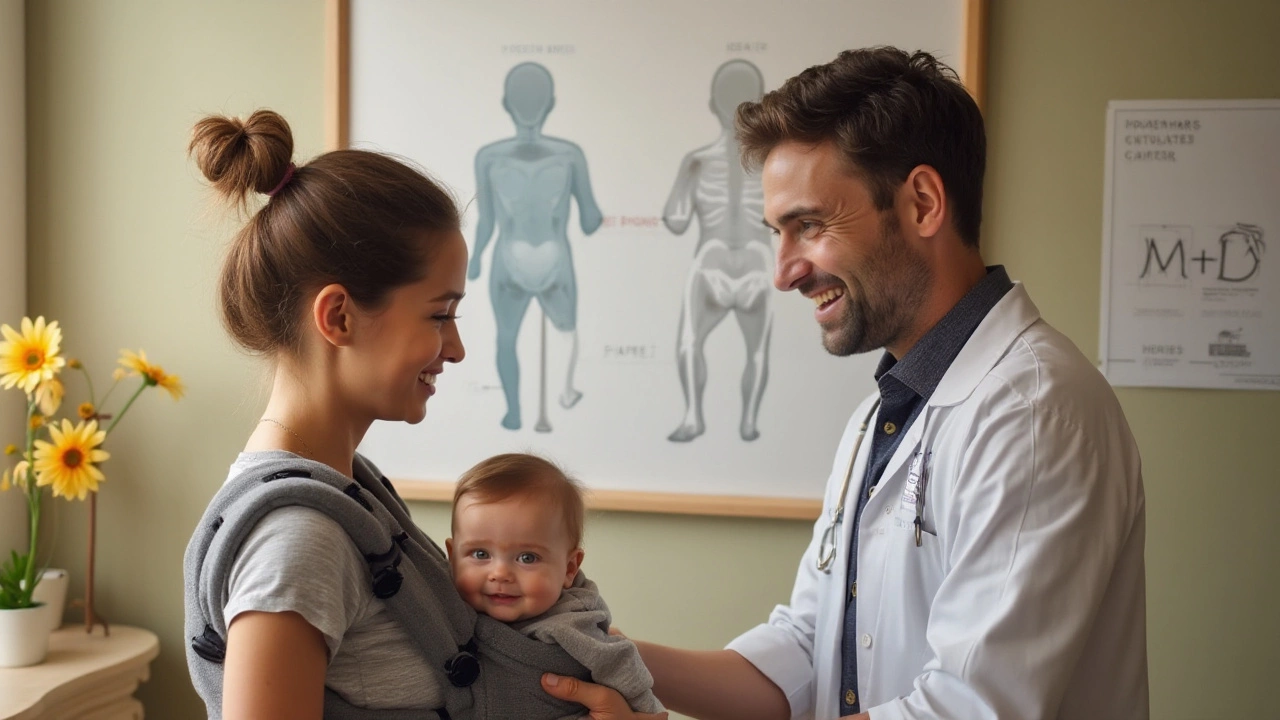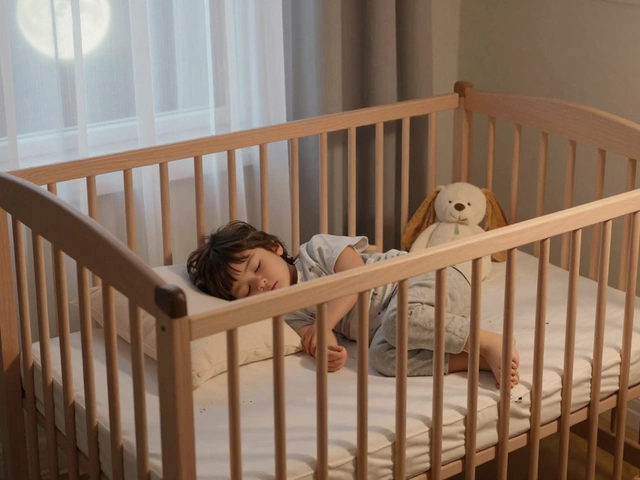Infant Hip Health: What Every Parent Should Know
Babies move a lot, but their hips are still developing. A few easy checks and habits can stop problems before they start. Below you’ll find quick ways to watch your baby’s hips, spot warning signs, and add gentle moves to daily routine.
Spotting Hip Issues Early
The most common concern is Developmental Hip Dysplasia (DDH). It happens when the hip socket isn’t deep enough, so the ball can slip out. Look for these signs during the first few months:
- One leg seems longer than the other.
- One knee bends up higher when the baby lies on their back.
- Clicking or popping sounds when moving the hips.
- Poor leg symmetry or a noticeable limp once they start walking.
If you notice anything odd, a quick visit to the GP or a pediatric physiotherapist can catch DDH early. Early treatment often means a simple harness, not surgery.
Everyday Habits for Healthy Hips
Most of the time, normal baby care already supports hip health. Just keep these habits in mind:
- Choose the right carrier. Use carriers that keep the hips in a “frog” position – knees higher than the bottom. This spreads the load and mimics the natural spread‑squat shape.
- Limit time in restrictive seats. Swaddles, tight straps, and car seats are fine for short periods, but avoid long stretches that keep the legs straight.
- Encourage tummy time. When babies are on their stomach, their hips naturally open up. Aim for a few minutes each day, increasing as they grow.
- Practice gentle hip lifts. While the baby lies on their back, gently bend each knee toward the chest, one at a time. Do this a few times a day; it helps maintain hip range of motion.
These small steps cost nothing but add up to healthier hips.
Remember, every baby is different. If your child was born breech, had a family history of DDH, or you’re unsure about a carrier, ask a professional for a quick check. The earlier you know, the easier it is to keep those hips safe.
Keep an eye on your little one, use the simple moves above, and you’ll give their hips the best chance to grow strong. Happy parenting!

The Effects of Baby Carriers on Infant Hip Health
Concerns about whether baby carriers can affect hip development have gained attention in parenting circles. This article delves into the relationship between the use of baby carriers and infant hip health, providing insights from experts and practical tips for parents. It examines how improper use can potentially contribute to hip dysplasia and offers guidance on choosing the right carrier. Discover how babywearing can be both safe and beneficial when done correctly.
view more

